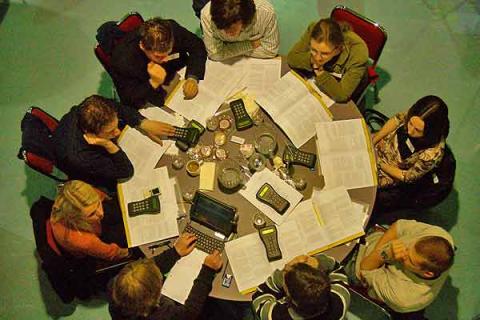Engaging citizens in public health decisions: the ASSET citizen consultation

Citizens from the eight Countries partner of the ASSET project will gather on September 24th to discuss and express themselves through a public consultation on some of the key topics of the project:
- Personal freedom and public health safety
- Communication between citizens and public health authorities
- Transparency in public health
- Access to knowledge
- Open session
The event will involve 50 citizens from each Country – chosen in order to represent the whole national population – who, at the same time and with the same modalities, will be required to express their opinion on a series of arguments related to the chosen topics. Their answers will be collected into a database, analysed and then forwarded to the European Commission.
What are they?
The expression “Citizen consultation” refer to a wide range of activities that involve citizens in decision processes by asking them to express their opinion on specific topics. Examples of these practices are participatory budgeting and deliberative polling. Citizen consultations are part of an approach known as deliberative democracy. Two different steps are required in order for deliberative democracy to work properly: a first information phase, which needs to be complete, transparent, honest and balanced, and a deliberative phase, in which citizens may vote to manifest their opinion.
Some history
Born out of a growing concern for the environmental and societal consequences of industrialization in the 1960’s, citizen consultations were mostly established in recent years. This is due to the rising awareness from politicians, scientists and stakeholders of the great opportunity, offered by these moments of discussion, of understanding population’s viewpoints about subjects that strongly affect their lives. Abortion, genetic engineering and climate changes are just some examples of the several themes for which the classic unidirectional communication approach (top-down) proved itself ineffective in promoting the engagement of the population.
Moreover, during the 2009 A(H1N1) flu virus epidemic, the level of preparedness to such a threat was not yet completely adequate among European member states, despite the efforts made after SARS and bird flu crisis. Therefore, starting in 2010, the European Union and the international health authorities began to think about how preparedness and the role of communication in preparedness could be improved. ASSET project has been thus conceived with a specific focus on communication and citizens’ engagement in such debates.
Other examples of citizen consultation
Citizen consultations have been put to use in several contexts. Here are some of them:
- The EU-project CIMULACT provides concrete and unique input to the identification of the future European research agenda by eliciting concerns about, wishes for and visions of desirable sustainable futures from 1000 citizens in 30 countries in Europe.
- The national advisory group INVOLVE in the United Kingdom, established to promote the public involvement of citizens and patients in the National Health Service, public health and social care research.
- The advisory groups of the US Food and Drug Administration, addressed to patients’ representatives.
- The empowerment initiatives in the Emilia Romagna region, in Italy, like the Laboratorio Cittadino Competente in Modena; the Laboratorio dei Cittadini per la Salute in Bologna; the Age.Na.S. survey on empowerment activities at regional level; the PartecipaSalute project that, since 2004, develops training, information and research activities for and with patients associations.
How it works?
The citizen consultation promoted by ASSET will be carried out through a method developed by the Danish Board of Technology Foundation (DBT). The method has been developed taking inspiration by the World Wide Views method (used in 2009 for COP15 in Copenhagen; in 2012 for the Biodiversity COP in Hyderabad; and in 2015 for COP21 in Paris). The work will take form as a transnational citizen consultation with simultaneous national face-to-face 1-da meetings with a web-based framework for transnational comparison of the national results. All meetings follow the exact same format. The day is divided into five thematic sessions, followed by evaluation questions. An information video introduces the thematic issue and citizens are then presented with a set of questions with pre-prepared answering options. Groups of 5-6 citizens deliberate on the questions before them, assisted by a trained table moderator. At the end of each session – this can take between 1 and 1 ½ hour – citizens vote individually on the questions. Votes are then collected and reported to the World Wide Views website, where results can be compared as they arrive throughout the day. Comparisons can be made between countries, continents and different groupings, such as developing and developed countries. Results will be presented both at national and European level. We will keep you posted about that.
